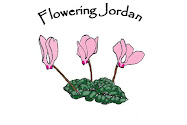
I came across this book by Kindle accident, when it showed up as a daily special. The word "Gaza" in the title caught my eye and caused me to look at the title of the book more closely. I read it first in November of last year and re-read it in January when our family choose it to be the first book of our Kindlings monthly book club. (We thought our name so clever, but of course, we weren't the first to think of it: The Kindlings.)
I Shall Not Hate is a powerful title and is matched by the powerful and inspiring story of Gazan doctor, Izzeldin Abuelaish. Raised in poverty in the Jabalia refugee camp in the Gaza Strip, Dr.Abuelaish overcomes many obstacles to become an Ob-Gyn, specializing in fertility issues. He earned a masters degree in public health from Harvard University, and became the first Palestinian to join the staff of an Israeli hospital, all the while working for understanding and peace between Palestinians and Israelis entangled in a conflict which spans his lifetime. His story, which is told with patience and grace, dispels the popular media myth that all Gazans are hateful people who fire missiles into Israel despite the fact that Israel has removed Israeli settlers from Gazan settlements.
Abuelaish's choice to refuse hating "the other", but rather to work patiently for peace is all the more powerful when one learns that Abuelaish's family home was bombed during Israel's 2009 Cast Lead operation, killing three of his daughters. The courage of Dr.Abuelaish prompted me to look into his story for clues of why he acted as he did, as he lived out his belief in the possibility of peace to which he holds so tenaciously.
First, I noted the strongest guiding influences during his childhood and teenage years. Abuelaish was the oldest child of his father's second wife. His mother, raising her family in poverty and always working to keep the family from starving, pushed her children very hard. They must study and they must work to provide for the family. While his mother's methods of encouraging her children toward these goals were not always healthy, Abuelaish credits his mother's strong spirit of survival and hope for her children in helping him to achieve his goals. Special school teachers also played a significant role. Recognizing Abuelaish's love of learning and academic ability, they encouraged him when he began school, and then later when he nearly dropped out to work to support his family.
The care and hospitality of an Israeli family who employed him, even though they were "the other" made a defining impression on Abuelaish and was a catalyst for him to commit himself to the role of active peacemaker.
"Yet it was from inside this home, built on destruction, that I was able to reflect on the second milestone in my life. The paradox between the warm hospitality of the Israeli family who had employed me that summer and the brute force of Sharon's Israeli soldiers made me recognize that I had to commit myself to finding a peaceful bridge between the divides."
Abuelaish believes "Medicine is the tool to help people better understand the problems of one another, to better communicate, to help us live together..." and so this is the path he committed himself to.
Dr. Marek Glezerman, speaking in the foreword of his colleague, notes that Izzeldin Abuelaish doesn't generalize the injustices he experiences so as to blame all Israelis. He continues that many of the Israeli and Palestinian people want peace; it is the leaders of the two sides which continue to perpetrate conflict by the hardline politics they promote. (How these leaders become leaders is another story altogether but when I think about how disenfranchised I feel by both the Republican and Democratic platforms in the US, I can understand this point.)
Returning to the rubble of his home after his daughters were killed, Dr. Abuelaish realized he was faced with two options: he could choose "darkness, poisonous hate and revenge" or light, thinking of the future and his remaining children. His conclusion: "Peace can only come about after an internal shift--on both sides. What we need is respect and inner strength to refuse to hate. Then we will achieve peace."
One small aside: a few comments made by Abuelaish in his book may sound as if he is justifying a fatalistic view of violence: oppression of Palestinians yields retaliation. "What do you expect?" "How would you behave?" I'm still working this out, but I think there is a difference between identifying causes and effects and justification. While retaliation is not required of oppression, it is not hard to see that this is an effect evidenced throughout the world and throughout history. I don't think that Abuelaish is justifying the retaliatory violence of the Palestinians, rather he is trying to explain it. It is not required. However, I have heard the justification argument more than once and I do think it can be a slippery slope from explaining cause and effect to justification.
Having lived on the edges of the Israeli Palestinian conflict for many years, and having read a lot on the history of the conflict and the current feelings about it from many sides (Arabs, Israelis, Americans, etc.) I am not surprised that Dr.Abuelaish has been criticized by for being too soft on the Israelis by some and too soft on the missle-firing Gazans, by others. The conversation, such as it is, is that polarized. Abuelaish, with his message of peace backed up by his life of activism (His foundation, Daughters for Life, promotes education, health, and leadership for Palestinian and Israeli females, and is supported in part by Abuelaish's speaking fees) is an important voice in this conversation, and one to which more people should listen.




No comments:
Post a Comment